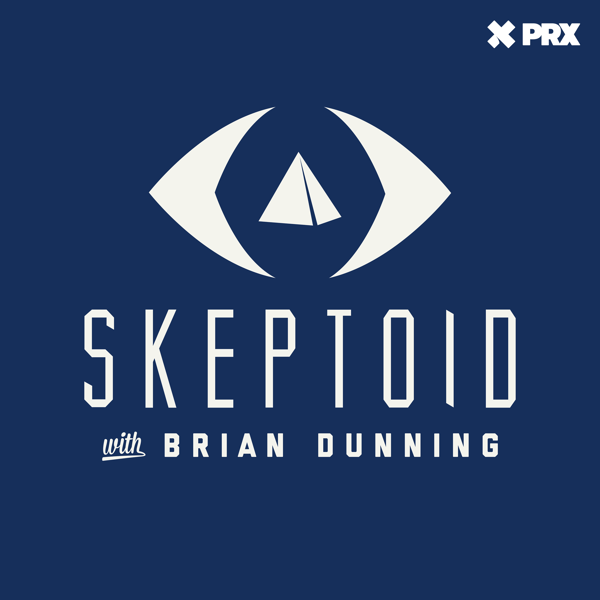Skeptoid #155: NLP: Neuro-linguistic Programming
Skeptoid
Brian Dunning
4.6 • 3K Ratings
🗓️ 26 May 2009
⏱️ 15 minutes
🧾️ Download transcript
Summary
Some regard Neuro-linguistic Programming as a psychotherapy breakthrough, some as a New Age self-help trend.
Transcript
Click on a timestamp to play from that location
| 0:00.0 | Any time we crack open a book of pop psychology from the 1970s, you know we're in for a good time. |
| 0:10.0 | It was a day when new discoveries were being made, not only in science, but in business and in culture. |
| 0:16.0 | So if we blend a little bit of that altogether, we have a sort of attempted mind control technique that claims psychological roots. |
| 0:26.0 | Neuro-Linguistic Programming. We're pointing this skeptical eye right at that today on Skeptoid. |
| 0:40.0 | Hey everyone, Brian here. A quick favor. We are conducting an audience survey. We'd be really grateful if you can take just a few minutes and answer our survey. |
| 0:49.0 | This is the kind of thing that's sort of an engineering and marketing necessity to make the whole free podcast ecosystem flourish. |
| 0:56.0 | So please check it out. Also, surveys are fun. You get to talk about yourself. |
| 1:01.0 | Please visit survey.prx.org slash Skeptoid to take the survey today. That's survey.prx.org slash SKEPTOID. Thanks. |
| 1:31.0 | Today we're going to point our skeptical eye at Neuro-Linguistic Programming, a new age communication technique intended to facilitate the exertion of influence. |
| 1:43.0 | Is it science? Or is it another spin the wheel and invent a new self-help system disguising its marketing within scientific sounding language? |
| 1:55.0 | It was the early 1970s and a young psychology student at the University of California Santa Cruz was spending another late night in the lab. |
| 2:04.0 | Richard Bandler's assignment was to transcribe hours and hours of psychotherapy sessions from the Maverick German psychiatrist Fritz Pearls. |
| 2:15.0 | After transcribing until his hands were about to fall off, Bandler noticed an interesting pattern in the way Pearls spoke to his patients. |
| 2:24.0 | Pearls had an odd, almost annoying habit of taking his patient's comments and going back over them with very specific questions, forcing the patients to closely re-examine their wording. |
| 2:38.0 | Sometimes it seemed that you couldn't make the simplest remark without Pearls raking you over the coals. |
| 2:43.0 | What made you choose this word? What are the implications of your statement? |
| 2:48.0 | Pearls would force his patients to confront the causes and motivations of even the most casual remark. |
| 2:55.0 | Bandler noticed that this technique had a dramatic effect. Patients would eventually be ground down to the point that they were unable to explain themselves, leaving something of an internal void. |
| 3:07.0 | And became exceptionally receptive to Pearls' suggestions to fill that void. |
| 3:13.0 | Rather than resenting what might be called harsh cross-examination, patients instead tended to embrace the process. |
| 3:21.0 | And Bandler found that, taken as a whole, Pearls' technique seemed highly effective. |
| 3:29.0 | Bandler reported his discovery to John Grindr, who was a linguist at Santa Cruz. |
... |
Please login to see the full transcript.
Disclaimer: The podcast and artwork embedded on this page are from Brian Dunning, and are the property of its owner and not affiliated with or endorsed by Tapesearch.
Generated transcripts are the property of Brian Dunning and are distributed freely under the Fair Use doctrine. Transcripts generated by Tapesearch are not guaranteed to be accurate.
Copyright © Tapesearch 2025.

